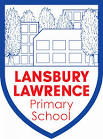Home Learning
Successful children
At Lansbury Lawrence Primary School, we believe that children are more successful when parents are active and aspirational partners in their child’s learning. Because of this, we work to give parents the information and the tools to support their children. We also know that many of our children work very hard after school and some of our children find completing work at home difficult for very many reasons. Traditional homework, where sheets are sent home for the children to complete are proven to have little impact on attainment for primary aged children and can cause stress for families.
The main ways that we support home learning are by:
- Providing every child with a reading book at their level every day
- A weekly piece of maths homework to develop fluency and recall of learning that has happened over the last week, term and year (flashback 4)
- Several online platforms that children and their families can opt to engage with at home which are paid for by the school
- Regular workshops to support parents’ understanding of the curriculum and in particular, how we teach reading and maths

It’s reading habits that matter most!
The most important thing that families can do to support their child’s learning and progress is to develop good reading habits. The habit of enjoying reading every day is the best gift for learning that we can give our children and this will help them across the whole curriculum. It’s also important to understand that reading books over and over again can develop fluency and help make reading an automatic skill. This is especially the case with younger readers, but applies to all children across our school.
This isn’t easy in the digital age that we live in, but many children do develop these habits and if you’d like some support with this, please ask!

Homework set by the class teacher:
1. We expect every child at Lansbury Lawrence to read a book at their level every day.
- In Early Years, the child should share the reading with an adult.
- After the Spring Half-Term, Reception children will be given a book at their ‘Phonics Level’.
- Throughout KS1, children are given a book at their ‘Phonics Level’. The school checks their success by parent communication, through reading records and by assessing their precise level every term.
- In KS2, children are given an accelerated reader book at their instructional level. The school checks their success through talking to the children and monitoring their quizzes and reading age. Because the school uses Accelerated Reader to look at reading habits, there is no need to use a reading record.
- Parents should feel free to talk to their child’s teacher or the school any time that they would like support with home reading.
2. Maths homework is designed to support fluency and will cover work across the year. Each piece will have:
- Questions taken from this week’s work; Questions from the term’s work; and Questions from the year’s work. Children should never be encountering questions that they are unfamiliar with as part of their homework. There is a standard template for classes to follow which is different in KS1 and KS2.
- Maths Homework will be given on a Friday and returned by the following Friday so that the work can be marked together, and a short teaching session can move the children away from misconceptions.
- An adult in the class will make sure that any children who haven’t completed their work have had the opportunity to do this so that they can benefit from the teaching session.
3. Occasionally, a class might get additional homework. For example, research following the children’s interests from class discussions or preparation for a particular test. This is always optional, and we will always work to give children a positive opportunity to complete this work in school if they are unable to at home.
4. A teacher might also work with a parent to give their child additional support at home. This might be because the child is finding something difficult in class and needs the extra support, or because they are showing a high level of achievement and the teacher thinks they can go further. Again, this is always optional.
Supporting Parents to do more:
We understand that some parents want to support their children to do more at home so to support this we:
- Remind all parents that the most important way to support your children is to develop good reading habits. Reading together for longer each day is the best way that you can support your child. Re-reading a book is good practice to develop fluency and deepen understanding.
- The school also pays for children to have accounts for Reading Eggs, Numbots and TTRockstars and for Year 6, the First News iHub
- The school office sells workbooks for each year group for maths and English in KS2. This is at cost price and the school makes no profit so that the best prices can be passed to our families.

